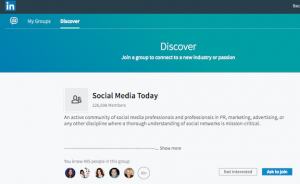While being a business owner can be very rewarding, it involves huge responsibility – juggling managing your staff and essential communications while you try to keep your eye on levels of productivity, growth and profit. This can leave you with little time to think strategically about your working day – let alone how your business can grow.
You may think that the best CEOs don’t think about the finer details of day-to-day management and that assistant staff plan the diary while you focus on higher-level leadership tasks, but in fact, continually looking for ways in which to streamline your time management during your working day is a vital cog in driving your business success.
So, what does the average day for a business owner look like? According to research around a quarter of CEO’s days are spent alone, while 56% of the day is spent with at least one other person – namely meetings. With such little time to tackle daily tasks, effective management is key to continued progress driven by the CEO.
Ensure you follow these four time management techniques to streamline your working day and make optimum use of your time.
Delegation
It is typical for business owners to be naturally hard grafters – someone who rolls their sleeves up to get stuck in. After all, you have to be exceptionally driven to own a business. However, this trait means that you can also be a workaholic and perfectionist, making it hard for you to delegate work, with the belief that only you can do certain tasks.
It is vital that you trust your staff and learn to delegate in the right way as this will give you extra time to grow the business.
The investment that you make in training another member of staff is justifiable in the time you free up.
Giants such as Google and Facebook find great success in delegating. These companies attract talent with ‘a more relaxed management culture in which authority is delegated and subordinates are more involved in decision-making.’
So, how do you delegate successfully? Make sure that you:
- Are clear about your expectations – use deadlines, parameters and goals
- Ask staff if they fully understand the task after training
- Are available if they need you, but that you can also step back
- Provide staff with feedback to improve performance
Utilising business tools
The holy grail for business owners is to make efficiency savings in all aspects of operations. Running your own business can be tough with limited time, tight budgets and limited staff members. The right tools can help you reach your business potential – make use of them during your working day to make life easier. Many tools come with a dedicated API so that you connect the apps together and they can communicate with each other.
Accounting
Whatever the size of your business, good accounting is vital. FreeAgent is cloud-based accounting software designed for freelancers and small business owners and will bring everything together from VAT, invoices, expenses, tax returns and payroll. It even comes with apps for Apple or Android phones.
Organisation
Trello is a collaboration tool that gives you a visual overview collaboration tool that allows you to see who is working on what and the progress they have made. This is a great tool to combine with your delegation!
Project management
Project management tools will help you to stay on top of a job and will give your clients a idea on project. Even if the project is internal, a tool such as Streamline will inform the team on progress and what needs to happen next.
Customer Relationship Management (CRM)
Whatever your business you will have important contacts that you will need to access in or out of the office. With the introduction of GDPR a spreadsheet on a desktop could leave you vulnerable to data breaches.
A CRM like Capsule is free for small users and will securely store all your data. You can access it via your mobile on the move and you can add new users as your business grows.
Tools to increase sales
Better Proposals is a tool that sends out proposals and overviews contracts to be signed.It also has analytics so you can see when pages have been opened and how long the content was viewed. You can also get integrate payment and use e-sign to get business moving quickly.
Social media tools
Social media tools with a monthly subscription like Sprout will provide you with insights that allow you to accurately focus your social media campaigns. Buffer is a free tool and will do the same, in less detail.
Customer support
Tools like ZenDesk offers a good ticket support system and offers mobile apps when you are on the move. Emails can easily get lost so having a system like this helps manage the administration, helps keep customers happy and stops your CRM getting loaded with complaints.
Outsourcing intelligently
In today’s online environment where everything moves very quickly, it is essential that you turn to experts to keep up. If your employees do not have that particular expertise with which you can delegate, outsourcing is a way of squaring away anything that you should not be doing.
There are two professionals a business owner needs from the outset – a lawyer and an accountant so that you have the expertise your business needs and your time is freed up. An accountant will review your figures periodically and prepare all your tax returns.
A lawyer will provide assistance in compliance, copyright, trademark, liability and lawsuits.
Many small businesses put off employing a lawyer until it is too late. Once you have been served with a complaint, you will have to pay expenses to get the problem resolved. You need to involve lawyers in your day-to-day decision making to save time and money in the long run.
Plan everything through your calendar
Your working day will be more efficient if you refer to your calendar for everything. Make sure that you utilise calendar tools so that your calendar is sharable and plans can be made around your existing appointments.
Those who use a calendar are more likely to be successful in business than those who don’t according to socio-economist Randall Bell. The CEO of LinkedIn, Jeff Weiner, even blocks time on the calendar to ‘do nothing’ so he has a mental break, ultimately leading to being more productive as he remains focused.
This sounds obvious, but actually many business owners keep a task list of ‘to-dos’ separately from the calendar which is only used for appointments. You need to schedule everything of value on your calendar – and this includes time to sit alone to think strategically about the future and time to learn new skills. Block time to review metrics against goals, read industry blogs, review your top objectives and train those you have delegated work. Otherwise, this time can easily be overlooked.
A calendar is more powerful than a to-do list as it will actually get things done. Otherwise items can be bumped down on a to-do list and stress can be created from unfinished tasks. In planning to accomplish the tasks in a set time, you will become more productive and less stressed.
Business & Finance Articles on Business 2 Community(84)
Report Post






